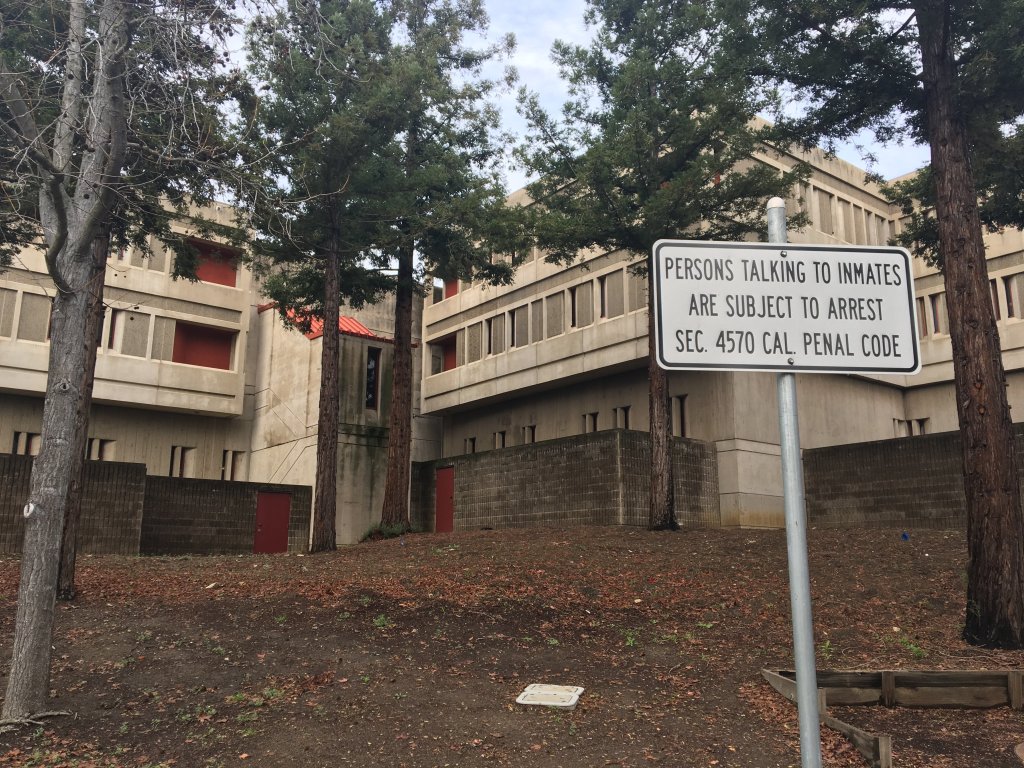Despite pleas from dozens of residents and activists to cut the Sheriff’s Office budget, the Contra Costa County Board of Supervisors on Tuesday decided to add 25 new positions to the department and renovate the county jail in Martinez.
Money for the new positions will come from the federal CARES Act and the $16 million for jail work from the county’s general fund.
Of the new positions, 23 deputies and a lieutenant will staff the Martinez Detention Facility and one deputy will join a “mental health evaluation team” that responds to people experiencing mental health crises in the county, Sheriff David Livingston told the supervisors last week — the first of two board hearings on the sheriff’s budget.
The mental health deputy position will be funded by state criminal justice realignment money at an annual cost of $291,805. The county also plans to use $1.75 million in CARES Act funding — specifically Coronavirus Relief Fund money — to finance the 23 deputies and lieutenant for six months. After that, the county will have to fund those positions from its own general fund for the following fiscal years, County Administrator David Twa noted.
Despite a concerted public pushback urging the county to divert some of the Sheriff’s Office funding to non-police services aimed at preventing crime, county officials said they didn’t really have a choice.
The county has been working to reach a settlement with the Prison Law Office, an organization that fights for the constitutional rights of incarcerated people through education and litigation. The settlement will require the county to improve jail conditions for the betterment of inmates’ mental health, including more visitation time, more time outside of their cells, more programming and improved physical and mental health services.
Residents who spoke at Tuesday’s meeting and Supervisor John Gioia questioned why a total of 25 deputies needed to be added to the office. Gioia wondered why after moving inmates out of the smallest detention facility in Marsh Creek and into the West County Detention Facility, deputies could not be transferred to the other two facilities to accomplish the tasks required by the settlement.
Undersheriff Michael Casten replied that 10 deputies had been working at the Marsh Creek facility when it was decided to transfer inmates there to West County. As a result, seven deputies were transferred and three remained to guard the empty jail.
Casten went on to say that with the onset of the coronavirus, the Sheriff’s Office has had to spread people out across different modules to create social distancing space, and that requires more assistance from deputies. With already vacant positions, he noted, the need for additional staff will be even greater to achieve the settlement’s terms.
A similar situation happened in Alameda County, where the Board of Supervisors in May authorized spending more than $300 million over the next three years to hire 456 extra employees to staff the main jail after the county was hit with a lawsuit in 2018 alleging that mentally ill inmates weren’t getting properly treated and monitored.
But the dozens who spoke at the Contra Costa meeting Tuesday — and the more than 90 people who did so at the meeting last week — said the $5 million-plus saved if the county officially closes the Marsh Creek Detention Facility could be spent on services and not jails, where in 2018 and 2019, a total of 10 inmates had died.
“It makes no sense why COVID relief money is being invested in law enforcement,” Tony Bravo, of the Contra Costa Immigrant Rights Alliance, told supervisors.
“We are caging Black and Brown people in a disparate manner in this county,” added Gigi Crowder, executive director of the National Alliance on Mental Illness Contra Costa.
The board also added 18 positions to its Health Services department as part of Tuesday’s action, and more than a dozen had been added earlier this year, Twa pointed out. Part of improving the jail conditions under the settlement involves providing better medical care, including mental health services.
“As programming and services are increased, more staffing is required to transport the deputies to these services and provide a safe working environment for Health Services staff,” a county memo states.
Last week, the Board voted 3-2 to approve the county’s budget for the 2020-21 fiscal year. Gioia and Supervisor Federal Glover dissented, citing a lack of transparency involving the sheriff’s proposed new positions. But after Tuesday’s discussion about why the county is using COVID money for the deputies, Glover joined supervisors Candace Andersen, Diane Burgis and Karen Mitchoff in approving the addition of the new positions.
The board also unanimously voted to proceed with a $16.3 million renovation of the Martinez Detention Facility, which will involve resizing the cells to create “mental health cells.”
Currently, state hospitals that are supposed to take in arrested people who are incompetent to stand trial or awaiting a competency decision have massive delays and lack of space. A renovated Martinez facility would provide better care for those with mental health crises who can’t immediately go to the state hospitals, Twa said.
The decision comes roughly three years after the supervisors approved funding for a $95 million expansion of the West County Detention Facility, which they said then would be used to boost mental health treatment. Like Tuesday’s decision, that approval was met with controversy.
“We know these officers are not capable of taking care of these people,” said Danny Espinoza, of the Lift Up Contra Costa coalition. “All of this money should be going to a non-police response.”



















